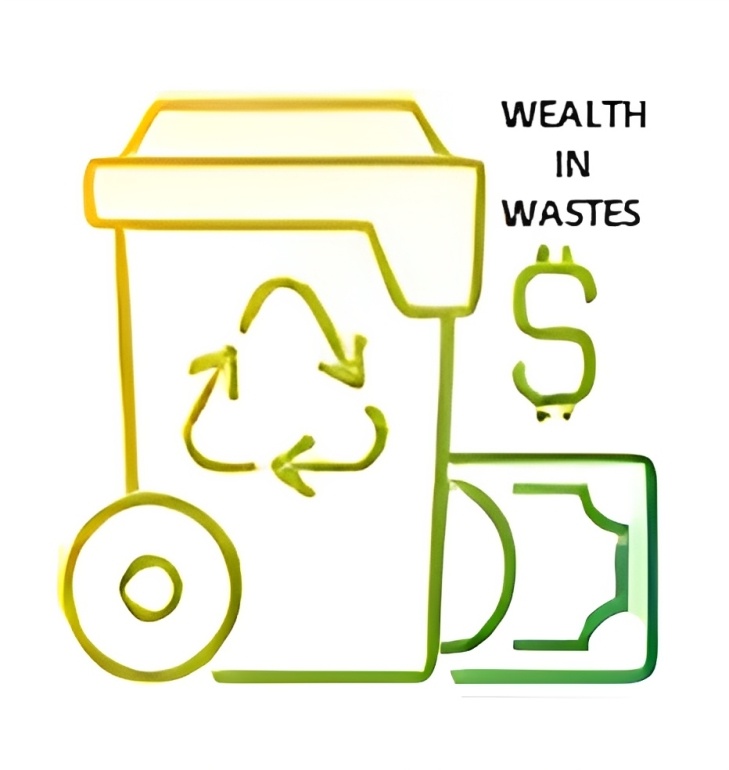Nowadays Waste Management is a critical global challenge. As the world's population continues to grow and consume more resources, so too does the amount of waste we produce. This waste can have a devastating impact on the environment and human health, polluting our air, water, and soil.
The good news is that there are a number of innovative technologies and trends emerging that could revolutionize the way we manage waste in the future. These innovations are focused on reducing waste generation, increasing recycling and composting rates, and developing new ways to convert waste into valuable resources.
One of the most promising trends in waste management is the shift towards a circular economy. A circular economy is a system in which resources are kept in use for as long as possible and then recycled or reused at the end of their life. This is in contrast to the traditional linear economy model, which is based on the "take-make-waste" approach.
A number of businesses and governments are now working to implement circular economy principles in their waste management practices. For example, some companies are designing products that can be easily repaired, recycled, or reused. Other businesses are developing new ways to recycle and reuse materials that were previously considered to be waste.
Another important trend in waste management is the use of technology. Technology is being used to improve the efficiency and effectiveness of waste collection, sorting, and processing. For example, smart bins can monitor their fill levels and send alerts to waste collection companies when they need to be emptied. Robotic sorting systems can identify and sort recyclable materials with remarkable accuracy and speed. And advanced data analytics can be used to optimize waste management operations and reduce costs.
Here are some specific examples of innovative technologies and trends that are shaping the future of waste management:
- Smart bins: Smart bins use sensors and the Internet of Things (IoT) to collect data on waste levels, fill rates, and other factors. This data can be used to optimize waste collection routes, reduce fuel consumption, and improve overall efficiency.
- Robotic sorting systems: Robotic sorting systems use artificial intelligence (AI) and machine learning to identify and sort recyclable materials with high accuracy and speed. This can help to increase recycling rates and reduce contamination.
- Waste-to-energy technologies: Waste-to-energy technologies convert waste into electricity, heat, or other forms of energy. This can help to reduce greenhouse gas emissions and reliance on fossil fuels.
- Composting technologies: Composting technologies convert organic waste into a nutrient-rich fertilizer that can be used to improve soil health and crop yields. This can help to reduce the use of synthetic fertilizers and pesticides.
- Anaerobic digestion: Anaerobic digestion is a biological process that breaks down organic waste in the absence of oxygen. This process produces biogas, which can be used to generate electricity or heat. It also produces a nutrient-rich digestate that can be used as fertilizer.
In addition to these technological innovations, there are a number of other trends that are shaping the future of waste management. These include:
- Increased public awareness and engagement: People are becoming increasingly aware of the environmental and social impacts of waste. This has led to a growing demand for sustainable waste management solutions.
- Government policies and regulations: Governments around the world are enacting policies and regulations to promote waste reduction, recycling, and composting. These policies are helping to drive innovation in the waste management sector.
- Corporate social responsibility: Many businesses are now incorporating waste management into their corporate social responsibility (CSR) initiatives. This is helping to reduce the environmental impact of businesses and their supply chains.
The future of waste management is bright. With the help of new technologies, trends, and policies, we can create a more sustainable and circular economy where waste is minimized and resources are kept in use for as long as possible.
Conclusion
The future of Waste Management is full of promise. New technologies and trends are emerging that can help us to reduce waste generation, increase recycling and composting rates, and develop new ways to convert waste into valuable resources.
By working together, we can create a more sustainable and circular economy where waste is minimized and resources are kept in use for as long as possible.


No comments yet